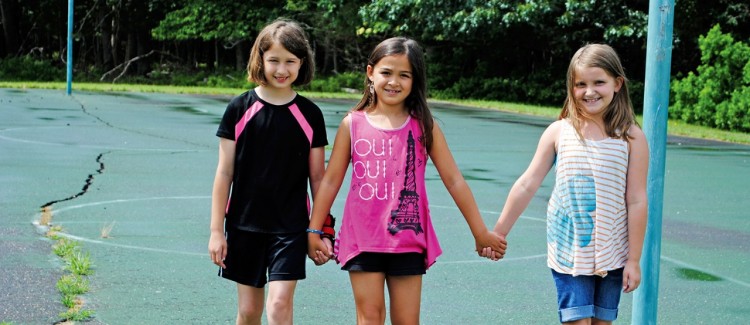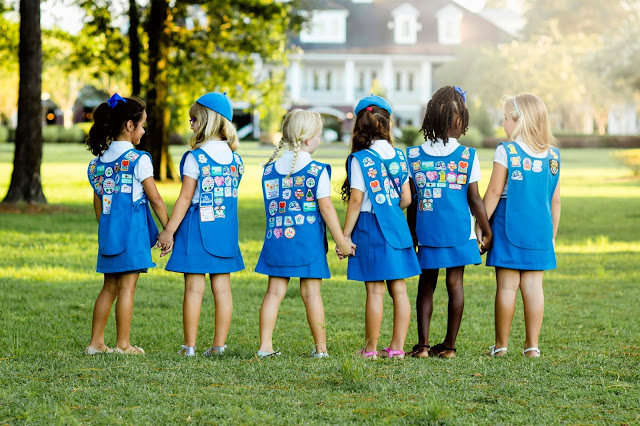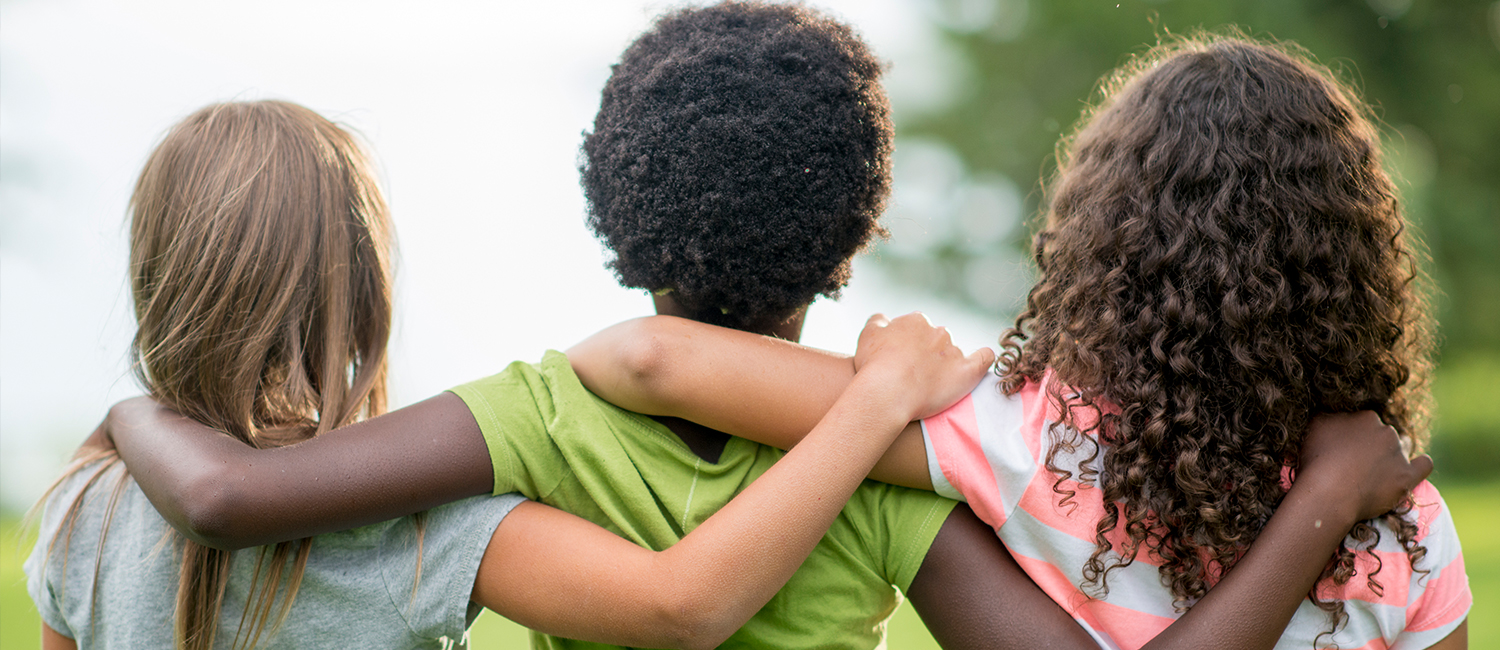 Bullying
Bullying
Help Us Stop Body Shaming in its Tracks
Whether you call it fat shaming or body shaming, one thing is clear: nobody should feel shame over their weight, clothing size, or body shape. And while you’d never intentionally say or do anything to make your girl feel too fat, too big, too anything—the sad truth is that more than half of girls in first through third grades think their “ideal weight” is less than their actual weight. You read that correctly. Six-year-old girls aren’t just aware of their weight; they think there’s something wrong with it.
Where are girls getting this body shame from, though? Despite the fact that you’d never, ever directly shame your daughter in any way, a lot of behaviors she sees in the grownups in her life can indirectly make your girl second-guess herself or see herself in a not-so-flattering light.
Basically, if you’re covering up your curves, staying out (or standing in the back) of family photos in an attempt to hide yourself, making disparaging jokes about your body, or even calling a pair of pants your “fat jeans,” she’s picking up on it and will likely view her own body through that same hyper-conscious lens.
It really is a problem. So much so that one in four kids say comments from their parents have made them self-conscious about their bodies. Even more depressing? Feeling shamed by parents actually makes kids more susceptible and sensitive to body shaming from others in their lives.
It’s a sad—and in some cases, dangerous—state of affairs. Girls deserve better. Families deserve better. We all deserve better.
But how can we end the cycle of fat shaming if we don’t even realize we’re part of the problem? It’s easier than you think, and it starts at home. Here are five ways to combat body shaming:
1. Recognize the Cycle of Body Drama
Despite the growing body-positivity movement, weight stigma is still in effect. Only about one in ten adult women actually feels good about her body. Your girl won’t be little forever, and obviously you want her to feel good about her body through her entire life.
That might be hard, though. Society as a whole has taught us to favor thin over thick. Think about this for a second: the average American woman wears size 16 clothing, yet almost every model in magazines and advertisements—and most female celebrities and influencers—are somewhere between a size 00 and 2. Every person of every size and shape should be valued—but when people who are thin or skinny are raised up as the ideal and other people aren’t, the message is pretty clear, and pretty messed up.
Add to the mix a bunch of unfair stereotypes. Overweight people are commonly labeled as lazy, stupid, or both. It’s not right, and it’s cruel, but it’s shaped the way generations of girls and women (and guys, too!) think of their bodies.
In so many ways, girls have the deck stacked against them when it comes to body image and body acceptance. Parents and families in general can play such an important role in balancing the negative with positive, healthy examples.
2. See Yourself Through Your Girl’s Eyes
We get it. If you have issues with your own body, you can’t just snap your fingers and suddenly love everything about it. Short of [EK2] magically wishing away any self-image challenges (can you imagine?!), there are two pretty powerful things you can do:
- Think back to a time (maybe it’s now!) when your girl wanted to wear matching outfits. That’s proof that your girl worships you and thinks you’re beautiful just as you are—treat yourself the way she’d treat you!
- Follow the age-old advice of faking it ‘til you make it.
In other words, pushing yourself to put on that bathing suit for a splash at the local pool, making sure family pics include your fabulous self, and adopting the air of confidence you want your girl to have about her body (even if it doesn’t come naturally to you) are all super awesome things you can do for your girl. Bonus? Over time, some of this pretend positivity might just become the real deal—helping you heal yourself and lift up your girl at the same time.
3. Curb “Diet” and “Skinny” Talk
Making healthy choices is an awesome form of self-love and a great way of life to model for your girl. What isn’t great is teaching your girl about a culture of deprivation and thinspiration. So if you’re looking to make some lifestyle changes, do your best to talk about them with your girl in terms of the strength and energy you’ll be giving your body by eating more balanced foods and getting active.
Setting health and fitness goals for yourself—like “I want to run my first 5K” or, even better, “I want our family to run our first 5K”—isn’t just a better message for your girl, it’s also more meaningful and possibly more attainable than a specific weight target or the idea of looking a certain way.
4. Help Her Tell “Fit” from Fiction
Talk to your girl about society’s beauty standards as well as what she thinks makes someone beautiful. Do they match up? When you see ads together, look at what body types are represented and talk with her about any photo alterations or deceptive camera angles that may have been used to make the people in the ad appear thinner. Discuss the movies and TV shows you watch together as well. Remember that the average American woman wears a size 16. What size did most of the women featured in the show probably wear? Was the average woman’s body seen anywhere on screen?
Helping her see that what’s shown to us in the media isn’t actually the norm (and that sometimes it’s not even real!) can help her feel better about her own body and realize that the skin she’s in isn’t too big, too small, too anything. She’s wonderful just the way she is.
5. Go Ahead, Tell Your Girl She’s Beautiful
No doubt you’ve heard advice from people who say complimenting a girl on her looks is a big no-no. You’re supposed to tell her she’s brave, strong, curious, funny, bold, or smart—basically anything but pretty or beautiful. But you know what? With so much body shaming going on in the world and so much pressure to meet unrealistic and often unattainable beauty standards, it’s actually important for your girl to hear she’s beautiful once in a while. Of course don’t make that the only thing you focus on—she is so much more than the way she looks, so mix in some praise for her hard work at school, her kindness, and her can-do attitude—but telling her she looks awesome isn’t going to hurt anything, and it might be just the thing she needs to hear.











